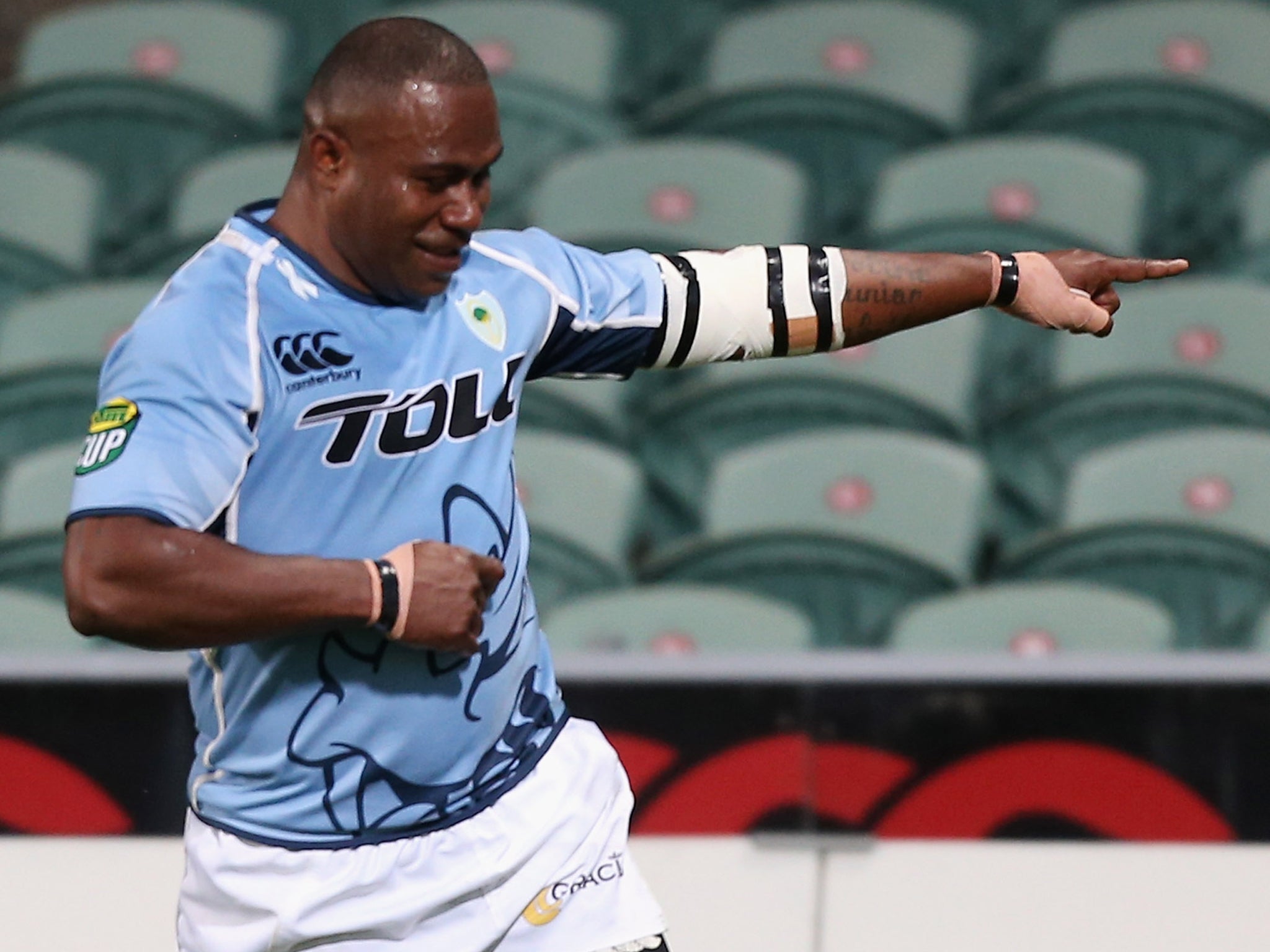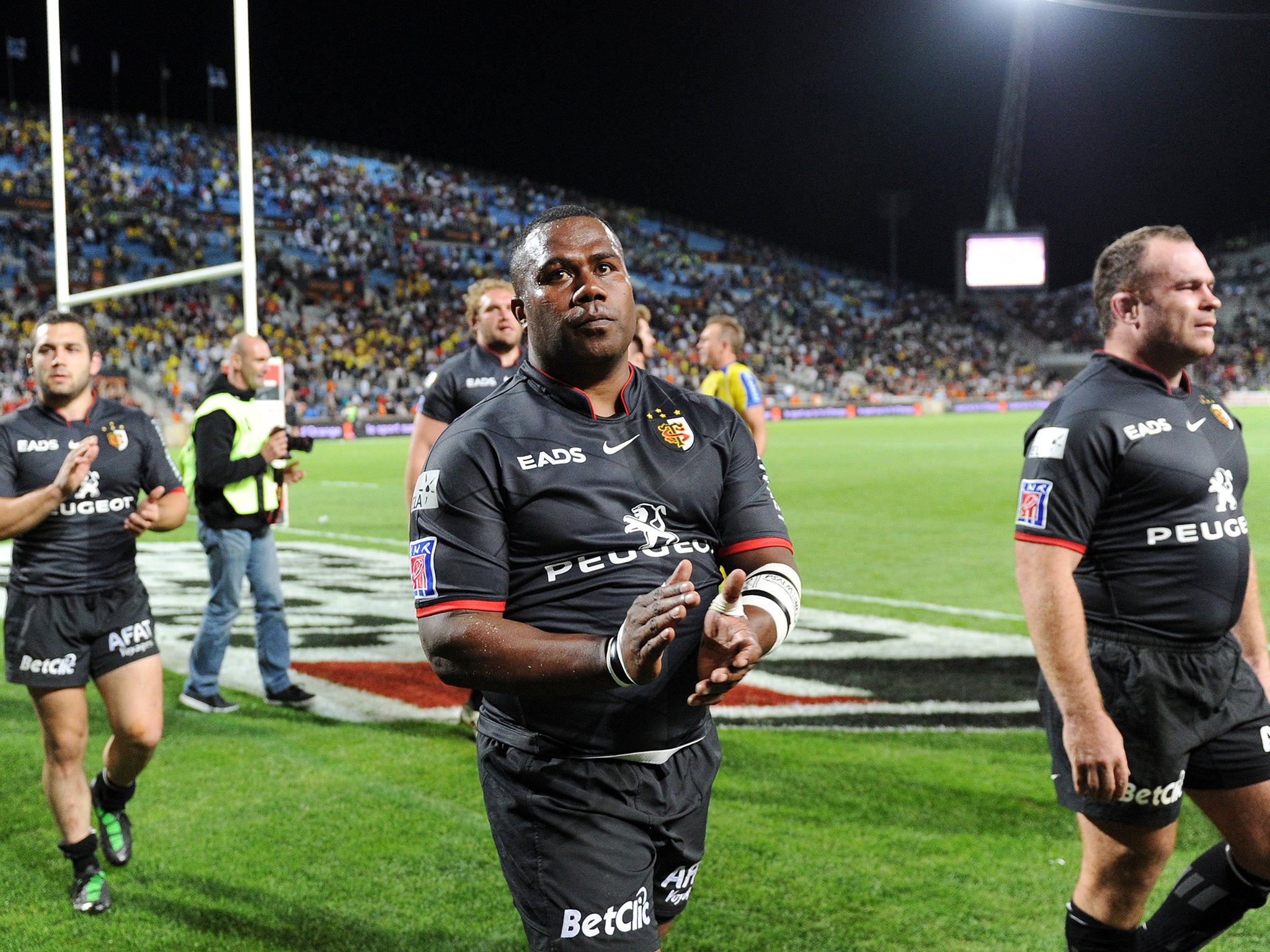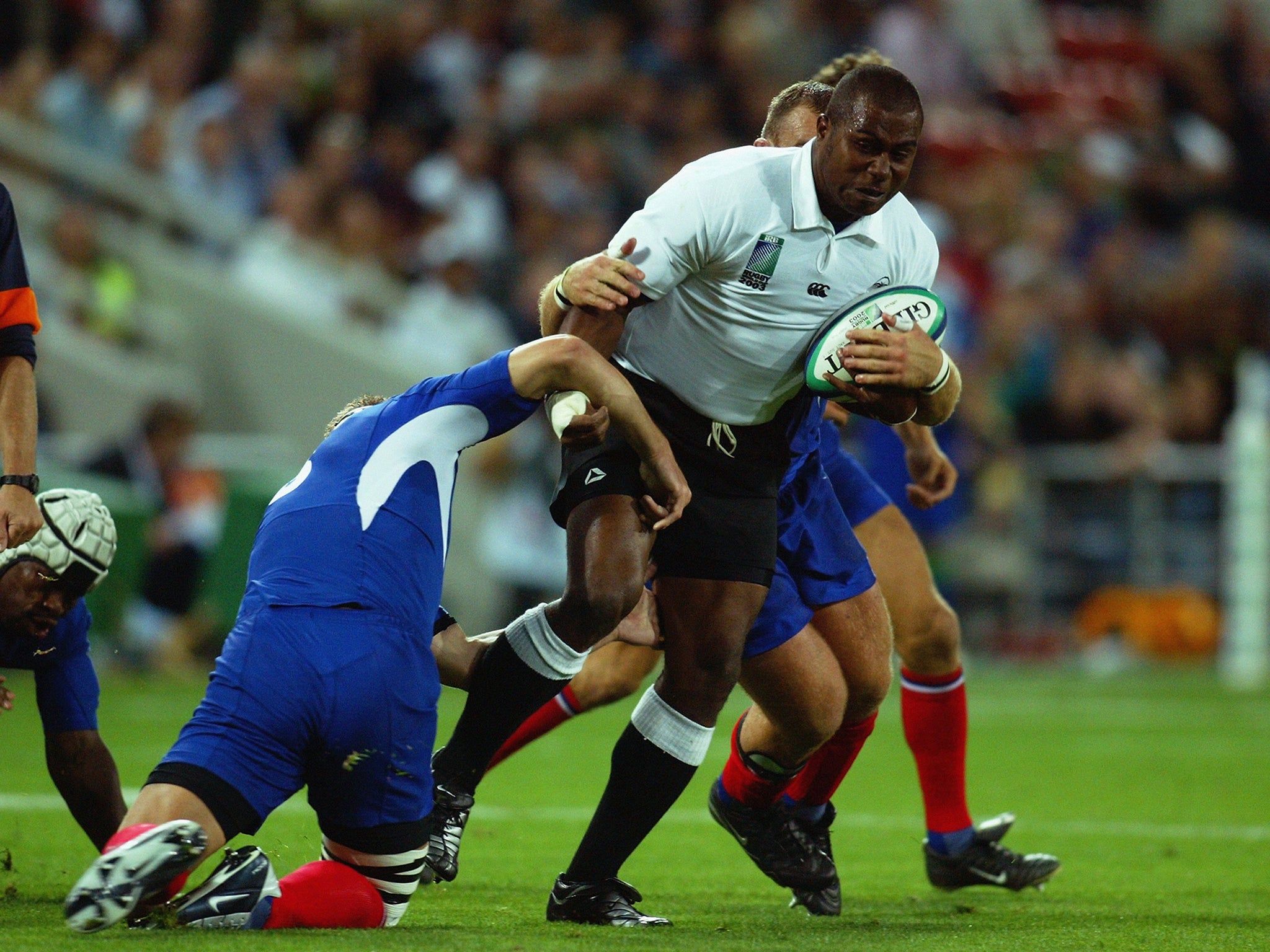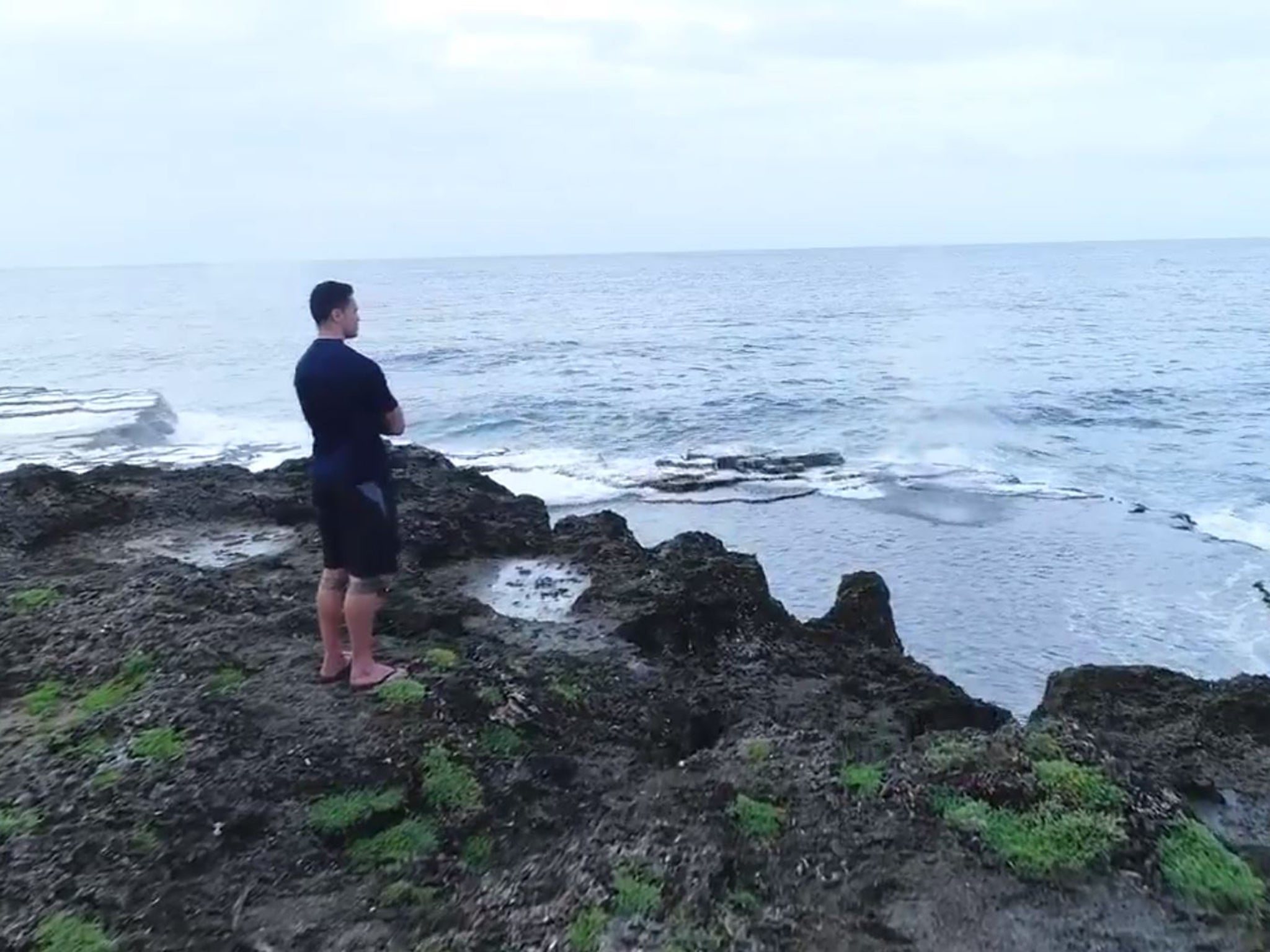Rupeni Caucaunibuca: How Caucau’s story will help transform the problems for Pacific Islanders playing in Europe
Exclusive: Former Samoa international Dan Leo tracked down the ex-Fijian Flyer, who finds himself bankrupt just four years after retiring from one of the most eye-catching careers ever seen in rugby union
Your support helps us to tell the story
From reproductive rights to climate change to Big Tech, The Independent is on the ground when the story is developing. Whether it's investigating the financials of Elon Musk's pro-Trump PAC or producing our latest documentary, 'The A Word', which shines a light on the American women fighting for reproductive rights, we know how important it is to parse out the facts from the messaging.
At such a critical moment in US history, we need reporters on the ground. Your donation allows us to keep sending journalists to speak to both sides of the story.
The Independent is trusted by Americans across the entire political spectrum. And unlike many other quality news outlets, we choose not to lock Americans out of our reporting and analysis with paywalls. We believe quality journalism should be available to everyone, paid for by those who can afford it.
Your support makes all the difference.Rugby union is at a crossroads. On the one hand, there is more money in the game than ever before, with the Premiership, Pro14 and proposed Nations Championship all attracting or interesting heavyweight financial backers. But on the other hand, it’s hard to argue that the sport had fully adapted to professionalism.
The core problem unsurprisingly is money, and the allure to have more and more of it. That goes for the Premiership and their attempts to take rugby beyond its current horizons with CVC Capital Partners, and also for World Rugby and the efforts to squeeze penny possible out of the selling the rights to the Nations Championship if it receives the green light.
But it also goes for the players themselves and, in particular, Pacific Islanders lured away from their home to the other side of the world with lucrative contracts.
The highest-profile player to take up this journey is undoubtedly Rupeni Caucaunibuca – or Caucau as he was more commonly known. Caucau was at one stage the most lethal finisher on the planet, taking the 2003 Rugby World Cup by storm and securing himself a lucrative move to France with Agen. His rise from the Nasau Village in the Bua district of Vanua Levu Island, Fiji, was so great that it was matched only by the subsequent fall, and it is almost unthinkable that such a talent ended his career with just seven Fiji caps to his name.
That fall from grace has left Caucau bankrupt, with not a penny remaining from his lucrative stints with the Blues, Northland, Agen and Toulouse. But while is story is one of sadness and tragedy, it is being used to ensure that the mistakes he made along the way will not be repeated by the next generation.
Caucau is one of many Pacific Islands players featured in the new Oceans Apart Series that coincides with a documentary put together by Pacific Rugby Player Welfare. To kick off the series, PRPW programme director and former Samoa international Dan Leo attempted to track down the former Fijian Flyer, who is not back in his home village living a ‘normal’ life – or as normal as a life can be when you remain a legend of the game.
“It’s a great start for us because he was a world known superstar and not just in New Zealand and Fiji and the southern hemisphere, but across the globe,” Leo tells The Independent. “I still speak to people and the first reactions to the video we put up on Twitter - which in 24 hours had 60,000 views - were a lot of English people saying ‘this guy was my favourite player growing up as a young rugby player’. Everyone here in the UK playing touch or something wanted to be Rupeni Caucaunibuca, and that just goes to show he’s one of the people who transcended location.
“Around him there were all sorts of stories about the fact that he’d just go missing for months on end and he was the hardest man to track down, and we had an experience of that, so we thought it was a great story to tell as the first part of the series and just try to profile the man. The thing is, no one really knows about him, we all know of him and what he’s done on the field, but if you Google him there’s a few smaller interviews and then you watch a 15-minute highlight reel. Most people would kill for a two-minute highlight reel but he was that good!
“When we were interviewing him he was quite open and honest as well which was cool, and we thought there’s a few lessons here that all of us can learn from this story, this story needs to be told.”
At one stage Caucau seemed to have the world at his feet, but as Leo reveals in the series, he has nothing left to show for his well-travelled journey – adding that his claim of “I wish I just saved a couple of hundred grand for life after rugby” showed not only the incredible salaries that came his way but how quickly it all disappeared in the four years since he retired.
There is an important message behind Caucau’s story – and the ones that will follow that includes the likes of Newcastle’s Logovi'i Mulipola and Niki Goneva, Ben Ryan, Eliota Fuimaono-Sapolu, Pat Lam, Charles Piutau, Lima Sopoaga, Taulupe Faletau and Semesa Rokoduguni as players of Polynesian descent plying their trade a long way from home.

“We had a Pacific Rugby Players Welfare board meeting in Bristol about nine months ago and it was the highlight of the conversation really, a landmark event,” explains Leo, with representatives from all of the leading leagues in Europe as well as rugby league’s Super League attending. “We were discussing all of the issues that are affecting Pacific Islanders who have migrated over to Europe and just talking about how we can address them.
“We’re talking about loneliness, depression, we’ve had a number of suicides in our community in the last eight years but particularly with lower league players. There’s also issues around financial disparities, eligibility laws, the shorter turnarounds at World Cups. There was a lot of stuff talked about and as we sort of knew that, we were looking at how we can address these, and really how to - this is the key thing - raise awareness of some of those challenges that we face before we can start to address them.
The concept of the documentary came from then and took us a few months to put into place to try and raise awareness of all sorts of issues, with the aim of answering the question: can and how will Pacific Islanders survive professionalism, what are the issues with professionalism as proposed and how are we going to navigate them in specifically the Pacific Islands themselves?

“We’re finding that entrance and exit points in the game is something that really came up a lot. When they first come over from the Islands and they’ve never been outside of Tonga before, they meet 100,000 people at Heathrow, so we’re seeing the understanding of that or having a contract that is signed, what the clubs’ responsibilities are in terms of getting a driver’s licence, putting their kids into schools, understanding Ofsted - all the things like that can be quite daunting if you’ve just arrived.
“That’s a big focus, but what we’re finding now is the transition of going out of the game, that career exit point, as one of the terminal areas. We’re discovering that the transition is a lot more difficult for Pacific Islanders in rugby than it is for other groups because a lot of the time we’re away from the traditional support structures. Our families, the people who we invest our money into, are on the other side of the world, so there’s going back to the other side of the world or there’s guys who stay here after their careers who haven’t actually invested anything so after rugby they can really struggle - probably more so.”

At a time when global professional rugby is changing rapidly, it is important that the Pacific Islands are not left behind. This season there were no fewer than 63 players who have either represented Samoa, Fiji or Tonga, or who have Polynesian heritage, playing across 11 of the 12 Premiership clubs. The traditions that surrounds these players have taken on a greater importance of late due to the Israel Folau saga, with the Australian sacked by the national governing body for his homophobic comments on Instagram.
The furious social media argument that followed between those who defended Folau’s right to free speech and those who condemned him has shone a light on a side of Polynesian faith that has rarely been discussed before. But Leo hopes that the Oceans Apart series will help to put that in a positive frame that reveals “one of the most tolerant places on earth”.
“Hopefully we can address this through the Oceans Apart series that if people aren’t going to come to the Pacific Islands then we’ll bring the Pacific Islands to the people and they’ve got to understand us better,” Leo added. “We do talk to players through the documentary about the spiritual importance of religion to Pacific Islanders and there’s enough there.
“The problem is we can’t expect an England fan to come to Samoa or Tonga and learn about how we actually really are because England never come, England have never been to Samoa. Every time we’ve played it’s either been in a World Cup or here (in England). I think if there was a greater understanding around our cultures or what the people are really like – we’re not just these savages that kill pigs and ride around in canoes – there’s a lot more to us than the stereotypes suggest.

“But we can’t expect people to learn that unless people have been there or we showcase it to them. Hopefully the series will show that and demonstrate the tolerance, and that 99.9 per cent of Christian people in the Pacific Islands express their faith and love to their neighbours, friends, and family whether they’re gay or not. It makes no difference to the vast majority.”
That all starts with the Rupeni Caucaunibuca story, which is released on YouTube on Tuesday night by PRPW, and if Caucau’s career was anything to go by, it will not be one to miss.
Join our commenting forum
Join thought-provoking conversations, follow other Independent readers and see their replies
Comments